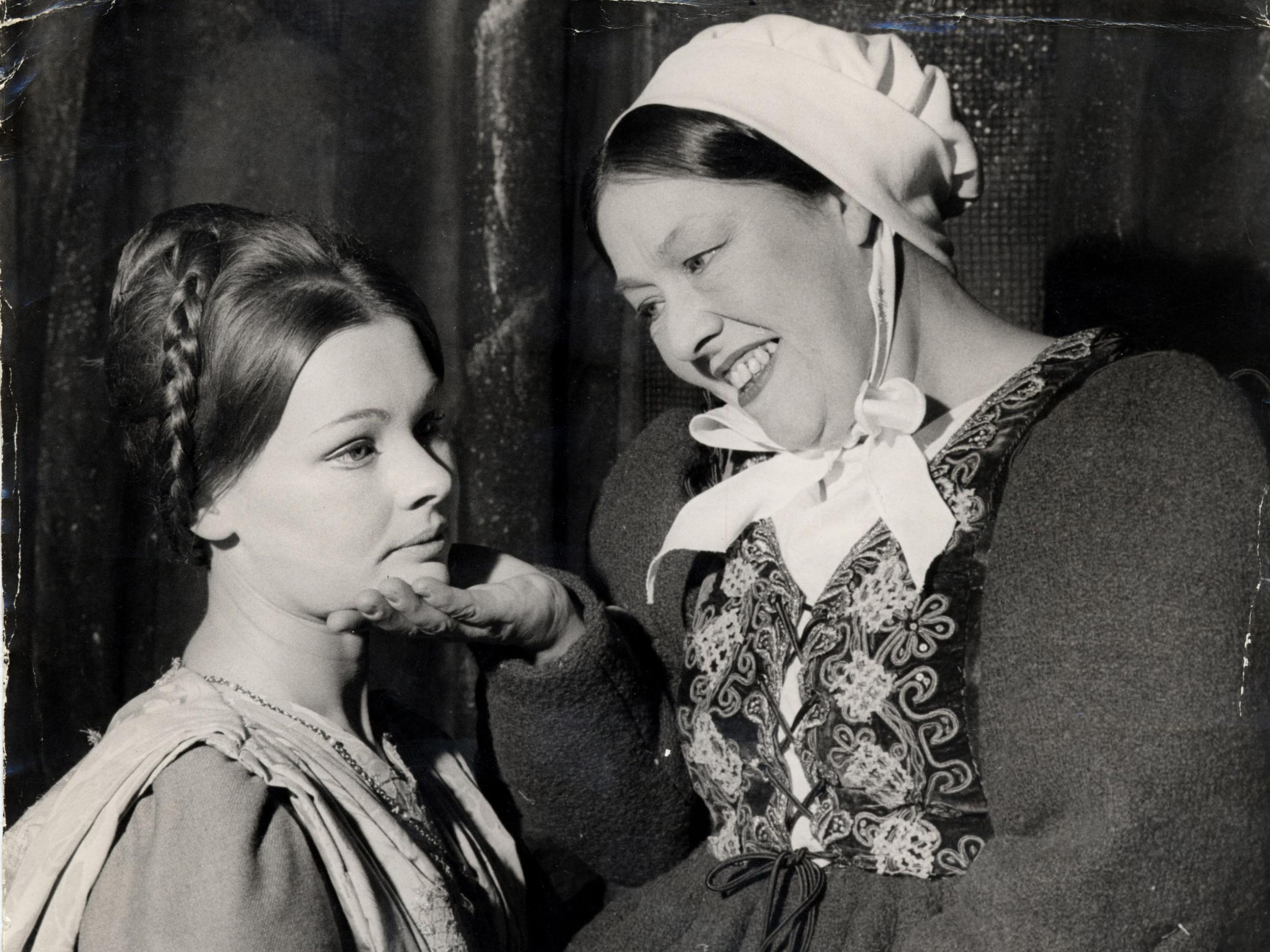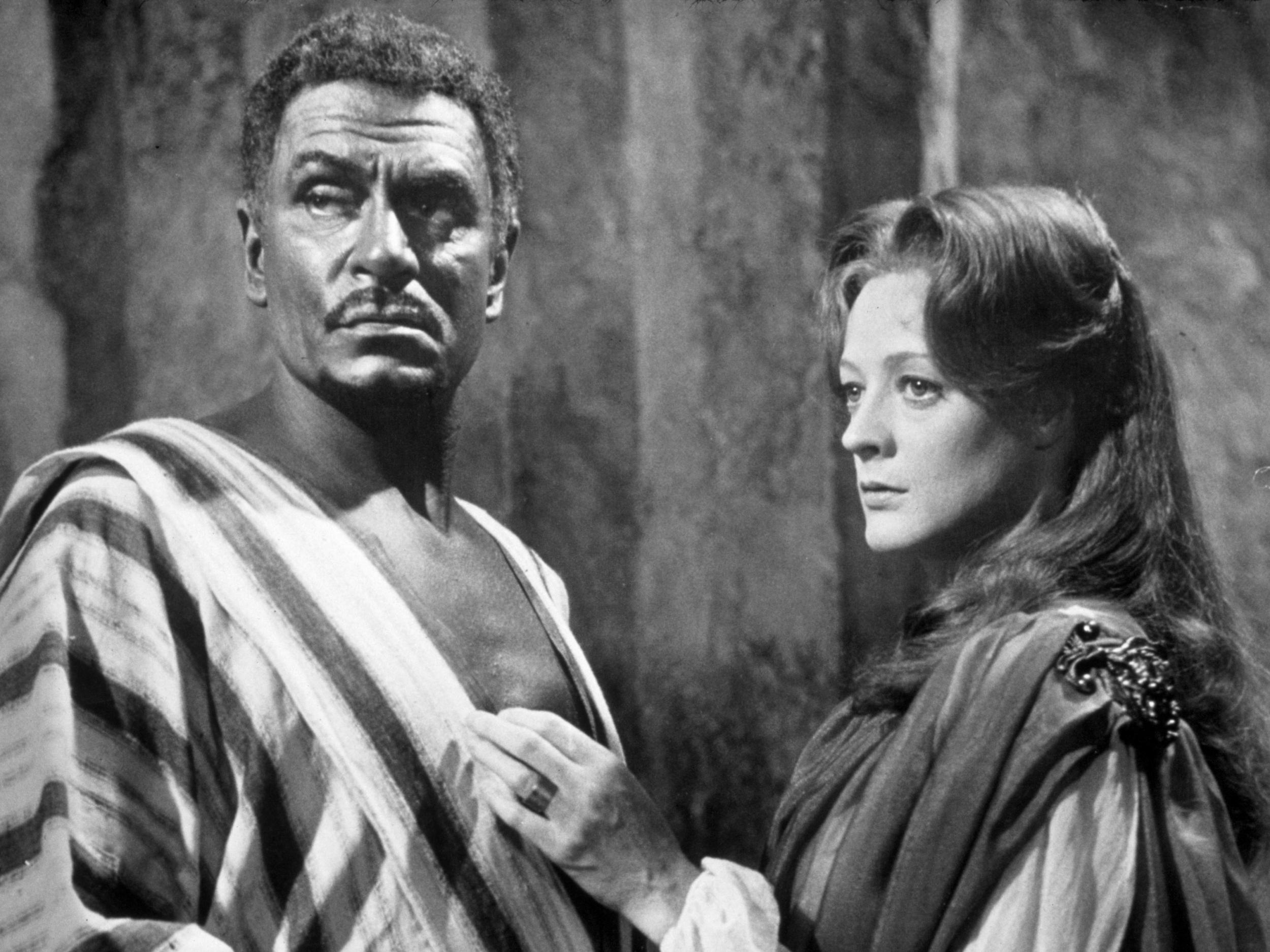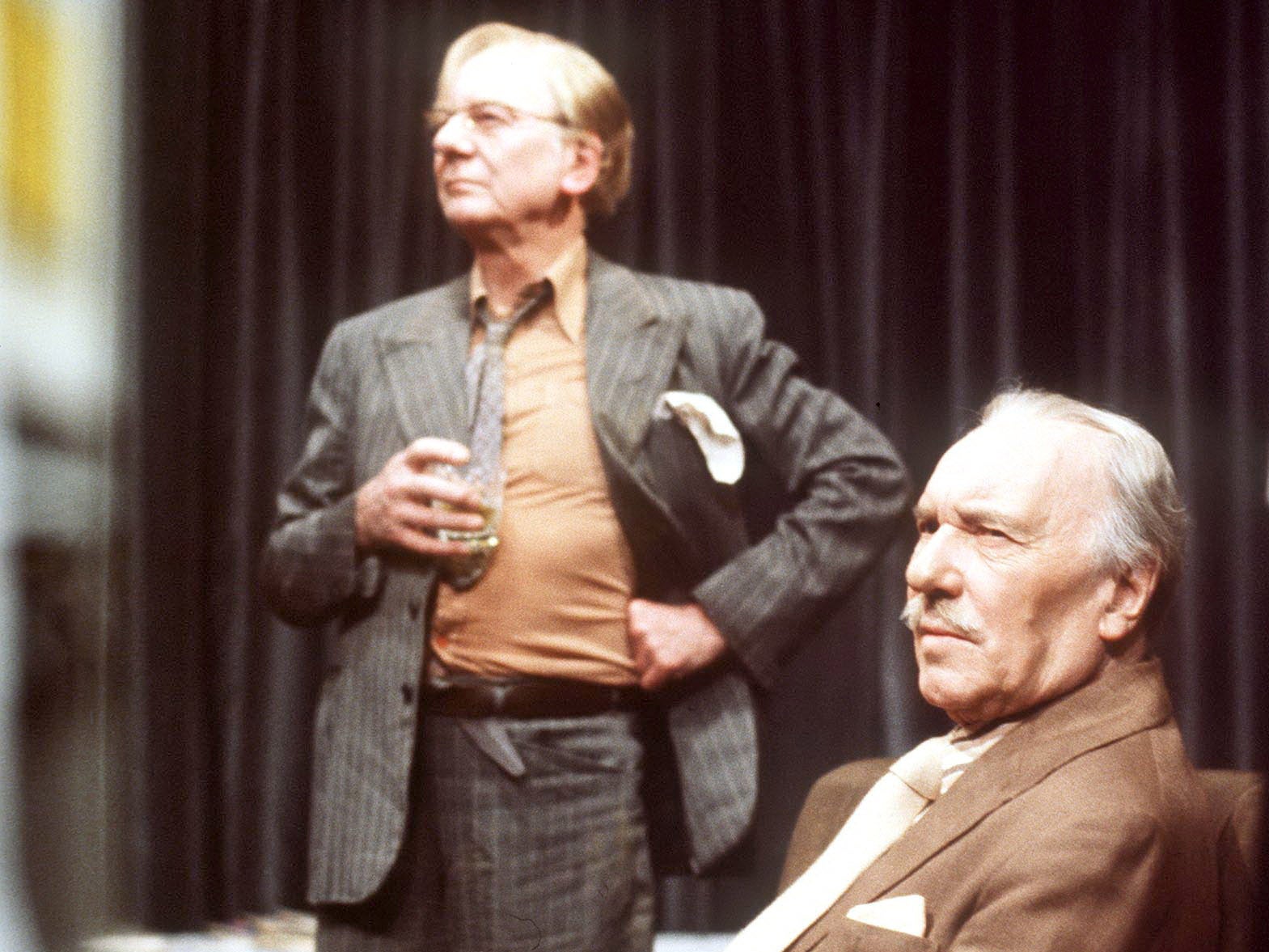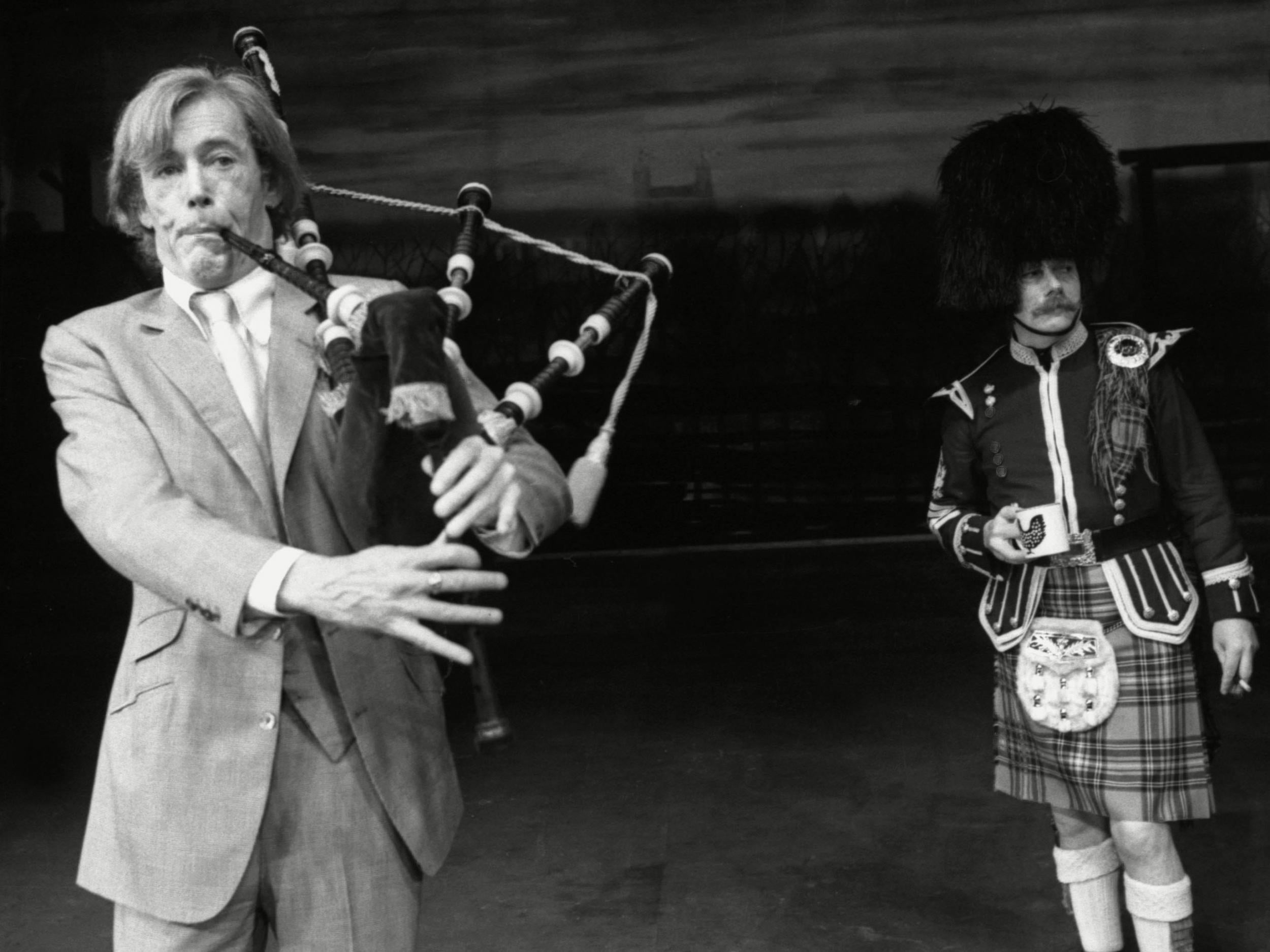The Old Vic at 200: Eight seminal productions that defined the legendary London theatre
The great stage celebrating its bicentenary has played host to some phenomenal performers and many an extraordinary night
The Old Vic Theatre first opened its doors in 1818 and this week celebrates its bicentenary.
Home to such giants of the stage as Edmund Kean, John Gielgud, Ralph Richardson, Laurence Olivier, Peggy Ashcroft and Maggie Smith, the London venue has enjoyed a rich and sometimes turbulent history.
From Kean berating his audience as "ignorant, unmitigated brutes" in 1831 to Gielgud and Richardson triumphing in Harold Pinter, the Vic has played host to some extraordinary evenings. Here are eight of the most notable.
Hamlet (1930)
The legendary John Gielgud, one of the finest actors of his or any era, joined the company at the invitation of director of productions Harcourt Williams in 1929. Only 25, he played Romeo, Richard II, Oberon in A Midsummer Night's Dream, Antonio in The Merchant of Venice and Cleante in Moliere's The Imaginary Invalid (1673) in his first season.
One of his most admired performances came when he took the title role in Hamlet, turning his youth to his advantage to play Shakespeare's sweet prince as a melancholy teen, absorbed in gloom. The production used the full text and ran to five hours but saw crowds queueing for tickets when critic James Agate hailed Gielgud's interpretation as "the high-water mark of English Shakespearean acting in our time".
Actress Sybil Thorndike was equally touched: "I never hoped to see Hamlet played as in one's dreams... I've had an evening of being swept right off my feet into another life – far more real than the life I live in, and moved, moved beyond words.”
Such an effect did not come without a great deal of anxiety, however, as the star recalled in his memoir Early Stages (1939): "All through rehearsals I was dismayed by my utter inability to forget myself while I was acting. It was not until I stood before an audience that I seemed to find the breadth and voice which enabled me suddenly to shake off my self-consciousness and live the part in my imagination."
After an unsuccessful transfer to the Queen's Theatre in the West End, when he was up against a summer heatwave and two rival Danes, Gielgud would direct his own production at the New Theatre in 1934, tour the play around Britain in 1935 and America in 1937 and perform at the real Elsinore in 1939, succeeded in the part at the Vic by the young Alec Guinness.
He returned to the tragedy repeatedly throughout his illustrious career but, frustratingly, declined an offer from Hungarian movie mogul Alexander Korda to film it – feeling insecure about his abilities as a screen actor despite good work in Alfred Hitchock's Secret Agent (1935) – leaving us with no visual record of this important early work (he did later record the soliloquies on LP).
"I was amazingly lucky with Hamlet. By the time I had finished with it I did not want to read or write about it anymore. I had played it many hundreds of times over 15 years, in six different productions", he later reflected.
The Tempest (1934)
The great film actor Charles Laughton - best known for playing the Hunchback of Notre Dame and Henry VIII - joined the Vic for the 1933/34 season alongside his wife Elsa Lanchester, soon to be immortalised as the Bride of Frankenstein.
They were hired by the Vic's formidable manager Lilian Baylis, known for her shrewdness, love of terriers and chaotic office and described by Laughton's biographer Charles Higham as "an administrator of genius, but a very ugly woman with a wall eye, crooked nose, and an unpleasant mouth, a violent battleaxe who ordered everybody rudely about and insulted Charles".
Laugton faired little better with director Tyrone Guthrie, whom he and Elsa nicknamed "the Butterfly that Stamped" and considered "affected and brittle". Their run together included Chekhov's The Cherry Orchard (1903) and a Measure for Measure that drew mixed reviews, despite plaudits from Gielgud and TS Eliot, but the highlight was Laughton's Prospero at the Vic's sister venue, Sadler's Wells, reopened by Baylis in 1925.
Laughton's mage was "convincingly weary, jaded and exhausted, speaking the lines... with the air of man who had been dragging chains", according to Higham. Lanchester played Ariel to huge acclaim, foregoing wires to suggest the sprite's flight by dashing quickly about the stage.
Richard III (1944)
Laurence Olivier was at the height of his powers when he played Richard Crookback at the New Theatre (now the Noel Coward) on St Martin's Lane, a period when the company was temporarily exiled from the Vic due to bomb damage during the Blitz. Olivier had already caused a sensation with his Macbeth at the theatre in 1937 opposite Judith Anderson, a production struck by the curse of the "Scottish play" when Baylis died the evening before its opening night and the actor himself was almost killed by a falling weight.

Olivier based his gleefully conniving portrayal of the pretender to the English throne on one Jed Harris, an American producer and agent he found "loathsome", but fostered grave doubts about his ability to play the scheming Duke of Gloucester right up until opening night, his nerves parlaying brilliantly into a performance as charged and agile as anything he achieved on stage.
Unlike his rival, Olivier was persuaded to record his Shakespearean performances for posterity by Korda and followed his Henry V (1944) and Hamlet (1948) with Richard III in 1955, bringing together Gielgud, Ralph Richardson, Cedric Hardwicke, Claire Bloom and Michael Gough for the climax to the Wars of the Roses.
Romeo & Juliet (1960)
Directed by Franco Zeffirelli and starring John Stride as Romeo, this production was notable for bringing Judi Dench to the attention of the British public. The future dame had already made a splash at the Vic as Ophelia in 1957 and as Katharine in Zeffirelli's Henry V in New York in 1958 but truly made her mark here as a touchingly juvenile Juliet.

The poet Michael Rosen recalled seeing Zeffirelli's staging as a teenager and was struck by the Italian's vibrant recreation of Renaissance Verona. Zeffirelli would film Shakespeare's tale of "star-crossed lovers" in 1968 with Olivia Hussey succeeding Dench but the actress would reunite with her director much later in life when she appeared in his 1999 period film Tea with Mussolini.
Othello (1964)
Lord Olivier would triumph again at the Vic as head of the National Theatre of Great Britain repertory company, founded in 1963. The actor had previously played Iago for Guthrie in 1938 opposite Richardson - a piece that toyed with the idea of the villain's motivation lying in suppressed homosexual desires for the Moor of Venice - but this time took the lead.
Zeffirelli was so enamoured of Olivier's blackface portrayal, in a production directed by John Dexter and featuring the young Maggie Smith as Desdemona, that he called it "an anthology of everything that has been discovered about acting in the past three centuries".

The praise was by no means unanimous, with The Sunday Telegraph damning it as "the kind of bad acting of which only a great actor is capable... near the frontiers of self-parody". Jonathan Miller likewise found it "a condescending view of an Afro-Caribbean person" and Oliver's Academy Award nomination for Best Actor when a film version was released in 1965 - still the only white player to receive the nod for a black role - would be unthinkable in the present climate.
For all that, his delivery of "It is the cause..." in particular is an utterly spellbinding piece of work and the characterisation deserves to be viewed dispassionately.
No Man's Land (1975)
Gielgud and Richardson – two great knights of the theatre who became famous friends after initially taking exception to one another – took a major professional risk when they agreed to tackle Harold Pinter's No Man's Land, giving the "extremely funny and extremely bleak" play its London premiere under Peter Hall.

Circling each other suspiciously and sipping copious quantities of Scotch as Spooner and Hirst, the pair triumphed in stepping away from their customary classical repertoire, overcoming fears that they were certain to make fools of themselves to win new acclaim.
Macbeth (1980)
The Old Vic has not always enjoyed success, however, with even popular stars vulnerable to embarrassment. Peter O'Toole came badly unstuck in his staging of Macbeth despite opting for a reasonably conventional approach, with the theatrical historian Terry Coleman reporting: "When he appeared drenched in gore from head to foot, paused, and then declared, 'I have done the deed', there was helpless laughter".

The critics were no kinder than the punters. The Sunday Times warned its readers: "Don’t trust those reviews. The spectacle is far worse than has hitherto been made out, a milestone in the history of coarse acting. The Observer was even more brutal: "Chances are he likes the play, but O'Toole's performance suggests that he is taking some kind of personal revenge on it."
Like Lord Olivier before him, O'Toole's production suffered the ill effects of the curse: his leading lady Frances Tomelty was in a motorcycle accident while he himself almost drove over a cliff while the play was in rehearsals and subsequently had his favourite watch stolen in the melee as the theatre was evacuated because of a bomb threat.
A production so disliked it was rumoured to be the reason the Vic lost its government subsidy, O'Toole's Macbeth was nevertheless a huge commercial success, no doubt in part because of its infamy.
Clarence Darrow (2014)
Hollywood actor Kevin Spacey, recently the subject of potentially career-ending sexual harassment allegations, was appointed artistic director of the Vic in 2003 and his first season commenced in 2004.
Spacey brought an American flavour to the theatre's offerings, reviving Philip Barry's The Philadelphia Story (1939), Eugene O'Neill's A Moon For the Misbegotten (1943), Tennessee Williams' Sweet Bird of Youth (1959), David Mamet's Speed-The-Plow (1988) and Arthur Miller's Resurrection Blues (2002). He also attracted stars from across the Atlantic including Jeff Goldblum, Matthew Modine, Neve Cambell and Kim Cattrall and the veteran director Robert Altman (unhappily).
Spacey marked the 10-year anniversary of his original run by starring in David W Rintels' one-man play about the famed American trial attorney Clarence Darrow – a person he had already played a fictionalised version of at the Vic in Trevor Nunn's 2009 production of Inherit The Wind – his swansong performance hailed as "barnstorming" by The Guardian.
Join our commenting forum
Join thought-provoking conversations, follow other Independent readers and see their replies
Comments
Bookmark popover
Removed from bookmarks